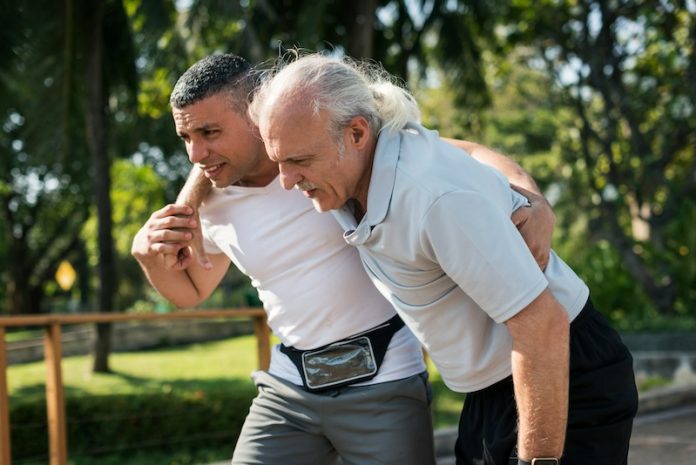
As people age, it’s widely believed that losing muscle strength is a natural and unavoidable part of getting older. We often think that our muscles simply wear out over time.
However, new research from Ohio University offers a different view. This study suggests that the real issue might not be with our muscles themselves, but with how our brains and nerves communicate with them.
The research was led by Brian Clark and involved an experiment with 66 older adults, all in their 70s. The main goal was to test how strong these individuals were, focusing specifically on the muscles used to straighten the leg.
The participants were asked to push against resistance as hard as they could, allowing the researchers to measure their muscle strength.
After this initial test, the researchers did something interesting—they used electrical stimulation on the muscles that had just been tested. This stimulation was designed to see if the muscles could push harder when given a little help.
If the muscles became stronger with this stimulation, it would suggest that the problem wasn’t the muscle itself, but rather how the brain and nerves were telling the muscle to move.
The results were eye-opening. For participants who initially showed weaker strength, there was a noticeable improvement in muscle strength after the electrical stimulation.
In fact, the weakest participants saw their muscle strength increase by an impressive 14.2%, which was double the improvement seen in those who were already stronger.
This suggests that the decline in muscle strength often blamed on aging might actually be more about the brain and nerves not working as well as they used to, rather than the muscles getting weaker on their own.
These findings could change the way we think about muscle weakness in older adults. While staying physically active is still important, this study highlights the need to also focus on keeping the nervous system healthy.
It’s not just about moving your muscles, but also about ensuring that your brain and nerves are effectively communicating with those muscles.
One way to do this might be through exercises that require both balance and strength. These kinds of exercises force your brain and nerves to work together with your muscles, which could help maintain strength as you age.
The idea is that by keeping the nervous system active and engaged, you might be able to preserve muscle strength for a longer time.
Looking ahead, this research opens the door to new kinds of treatments. In the future, we might see therapies that directly stimulate the nerves to help older adults maintain their strength and independence.
Instead of only focusing on building muscle, these treatments could target the nervous system, ensuring that the signals from the brain to the muscles remain strong.
Currently, the best way to maintain muscle strength as you age is to stay active. Regular physical activity helps keep your muscles strong and your nervous system sharp.
But thanks to studies like Brian Clark’s, which was published in JAMA Network Open, we may soon have new tools to help older adults stay strong and healthy.
This new understanding shifts the focus from the muscles alone to include the nervous system in the conversation about aging and muscle weakness. It also offers hope for potential treatments that could improve the quality of life for many people as they get older.
By ensuring that the brain and nerves stay as healthy as the muscles, we might be able to better maintain strength and independence in our later years.
If you care about diabetes, please read studies about high vitamin D level linked to lower dementia risk in diabetes, and green tea could help reduce death risk in diabetes.
For more information about nutrition, please see recent studies that blueberries strongly benefit people with metabolic syndrome, and results showing vitamin D could improve blood pressure in people with diabetes.
Copyright © 2024 Knowridge Science Report. All rights reserved.



